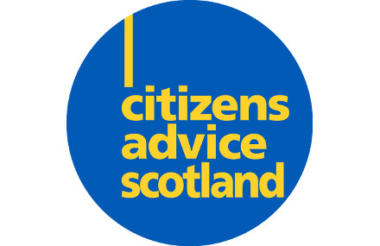A damning independent report into Citizens Advice Scotland’s governance structure has accused the board of “dysfunctional dynamics”, with trustees unable to stand up to “inappropriate behaviours” of the charity’s former chair.
The review by Deloitte accuses the board of being “driven by cliques and personal interests”, with stakeholders pointing to “bullying”, “tension”, “unprofessional” conduct, and board meetings “getting out of hand”.
It also calls into question the board's ability to "effectively assure" the charity is delivering its stated purpose and aims and ensure that "finances on a periodic basis are in order".
"The board does not spend sufficient time developing, reviewing and monitoring the implementation of strategy and receives limited information on finance and updates from the development committee," the review states.
The review follows a period of uncertainty at the charity, following the dismissal of its former chief executive Margaret Lynch and withdrawal of funding by the Department for Business, Innovation and Skills.
Reports surfaced in May that the charity was “on the brink of collapse” following the funding cut – although a spokesman for the charity “strongly refuted” the claim.
Today’s independent review, which was commissioned by the charity in April, calls for 32 recommended changes to CAS' governance.
They include the appointment of a transaction committee, to oversee the appointment of a new board and the appointment of a new independent chair, to be appointed through a “robust and competitive” recruitment process, based on “merit, skills and experience”.
The charity is also urged to introduce a new “vote of no confidence” process to make it easier to get rid of underperforming trustees.
Former chair Dominic Notarangelo stood down in June, prior to the report’s release. He is accused of failing to carry out “a number of responsibilities expected of a chair”.
These include the failure to conduct director assessments, failure to annually review the board’s effectiveness, failure to manage board meetings to appropriate timings – with some meetings lasting more than eight hours - failure to challenge the behaviour of trustees when necessary and failure to manage debate and discussion at board meetings.
Following Notarangelo’s resignation, the charity’s vice-chair, Agnes Robson, was appointed on an interim basis, pending the appointment of “an independent chair, with no previous connection with CAS”, as recommended by CAS stakeholders.
The report points to further problems in the relationship between the board and senior management team – and a lack of “cohesive relationship” between the two.
The report quotes stakeholders as describing the relationship between the groups as “unhealthy”, “tense” and “poor”.
“There is a clear lack of trust and scope for more regular engagement between the two groups,” the report said. “The board’s engagement with the member bureaux could also be enhanced. Members expressed views that the board does not communicate effectively with the bureaux and that there is a lack of transparency on key actions and decisions taken by the board.”
In a statement this morning, CAS chair Agnes Robson accepted the 32 recommended changes and issued a jointly-agreed action plan to implement them.
“Since the beginning of this year CAS has been addressing issues of concern over our governance structures and procedures,” said Robson. “The CAS board has unanimously agreed the recommendations. Over the next few months we will consult with our members to understand their views, ahead of seeking their formal approval.
“This review is about ensuring the structure of governance arrangements at CAS reflect current best practice in the sector. Implementation of the recommendations will ensure that CAS is in the best shape to support the needs of the organisation and the 61 independent Citizens Advice Bureaux who provide free, impartial and confidential advice to citizens across Scotland.
“The recommendations involve significant change. However, I am in no doubt that this is the right way forward, and the board has agreed the recommendations in full.”
A follow-up review will be conducted within “nine to 12 months” to monitor the charity’ changes, according to Deloitte.









